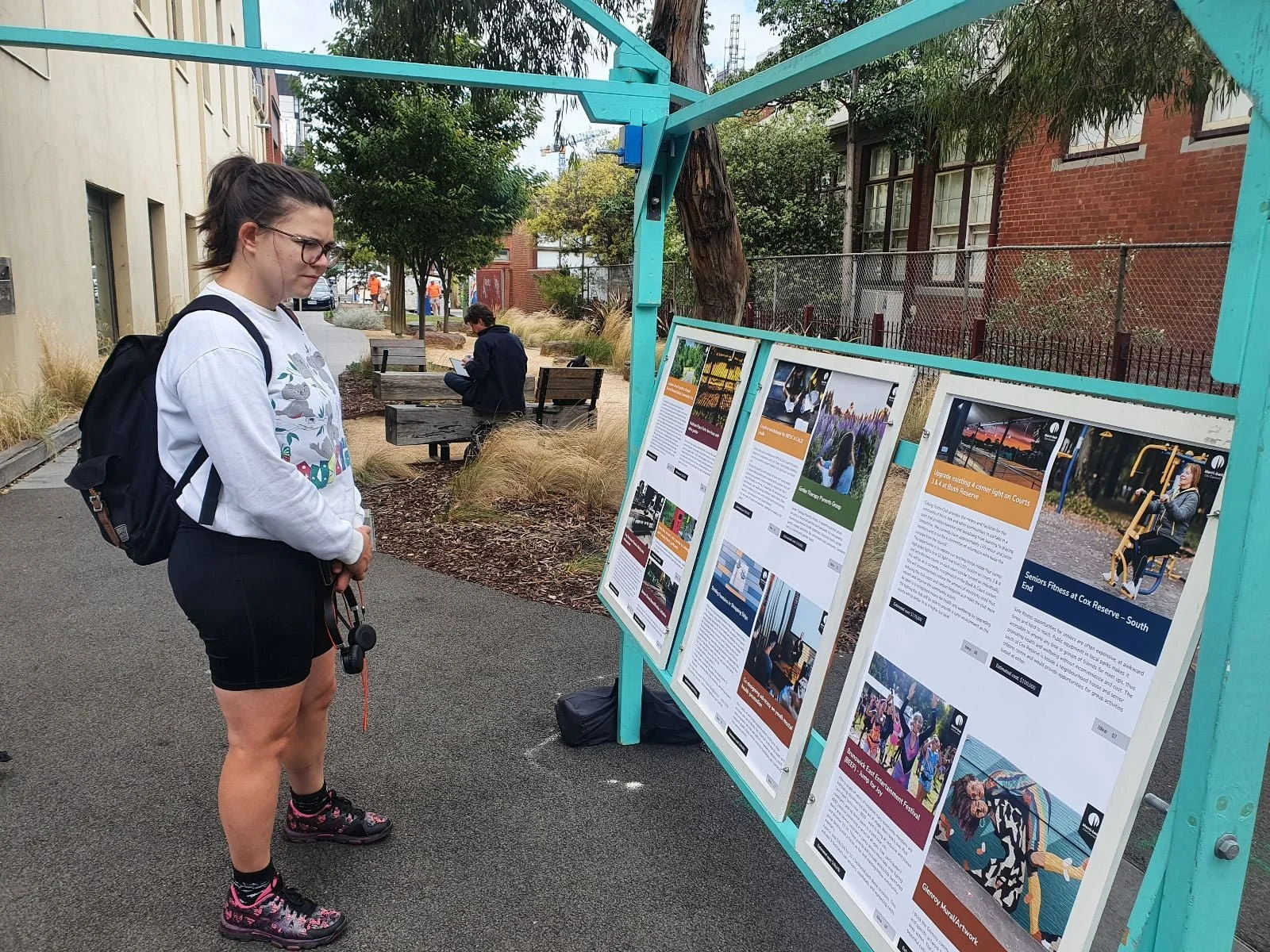Leading the Change with Merri-bek’s Community Budget
Sometimes, engaging with communities can be a difficult and complex process. Sometimes, we don’t get the results we planned for. Sometimes, the community can tell us things that are ‘out of scope’ or ‘not relevant’ to project outcomes. Sometimes, projects that seem relatively straightforward can trigger conversations about deeper, more complex or nuanced issues in communities. Sometimes, these results can seem like a whole lot of extra work or an engagement program that doesn’t ‘create value’.
We would disagree! It is super important in engagement to find things you weren’t really looking for. Engagement practitioners connect community voices to decision-makers. When what you hear is quite different from the questions you have asked, it’s not wasted time or effort but an integral part of civic participation and creating healthy relationships in a democracy. Decision makers that spend time hearing community feedback outside of the project scope, put in the work to connect disenchanted groups with leaders or just simply listen without trying to redirect conversation can help to build trust and create a picture of what is most important to community members.
Recently, Conversation Co had the privilege of working with the Merri-Bek community on their ‘Community Budget Process’. Often in our work, we are trying to foster on both sides; with communities and government. This project presented unique challenges and had moments requiring the Council to be flexible and responsive, things that governments can shy away from. We felt that in this project, the conversation between the Merri-bek community and their Council was robust and healthy. We would like to share some of our learnings from this process:
Community Budget The Community Budget process involved collecting submissions from organisations, sports clubs and other community groups for ideas to be funded in the next Council Budget. Our job was to take the finalist ideas out to the community to vote for their favourites. Some of the projects included new facilities for tennis courts, skill building programs targeted at youth and CALD communities, new infrastructure in neighbourhoods like facilities in shopping strips or in parks or programs to bring communities together like gardens or parents groups.
On paper, this is a dream project. There’s money already allocated, it’s a bottom-up and deliberative process, it’s positive and gets people talking about what their aspirations are in their neighbourhoods…However, when we went out into community we found; low levels of engagement, mistrust of Council and a general vibe of disenchantment with civic participation.
Bigger issues in people’s day-to-day lives take precedence over your engagement program. We noticed people felt disconnected, disempowered, marginalised or just straight up angry. So, instead of talking about the budget, we listened and wrote down people’s concerns. We discovered that residents had concerns about the provision of basic services and the community budget seemed inconsequential in comparison. Remember that services take precedence over policy or community matters, especially for vulnerable people. It is important to recognize that people have a lot going on in their lives and may not be able to prioritise your engagement program. It is important to be respectful of their time and needs and find ways to engage with them on their terms.
What we love about this, is that often if decision makers know there is a problem, they avoid engagement, looking for a better time where more ‘active’ or ‘positive’ engagement can happen. Instead, Merri-bek was visible, accountable for their mistakes, open to hearing negative feedback and worked to resolve the issue. Further, we found that most often, after people had shared their immediate concerns, they were happy to engage in the budget process.
Hearing harsh feedback is a blessing We copped some harsh words during this engagement. Our job in this instance is to transform harsh words into a respectful conversation about people’s grievances and probe deeper into what the causes may be and what we can do about it. By hearing people’s concerns, asking follow up questions and providing information Merri-bek was accountable and available to their community. This can work to repair relationships, build back trust and avoid disengagement. This took considerable flexibility, but is essential for the community to co-create what is on the agenda and have trust in the process. This learning is never wasted, as it helps decision makers when forming policy and thinking about community needs and aspirations.
Share the results Closing the loop is always an integral part of engagement. We think it’s particularly important to share the engagement findings if they differ from the norm or project brief to demonstrate to participants that they are heard and what has happened as a result of their input. This is crucial for building trust and keeping the community engaged in the process.
Engaging with disenchanted communities can be a challenging and complex process, but it is important for decision-makers to make the effort. By being available and up for a challenge, decision makers can enter more transparent, meaningful conversations and build a better picture of what is going on for communities. By doing so, we can create healthy relationships in a democracy and better serve the needs of our communities.



